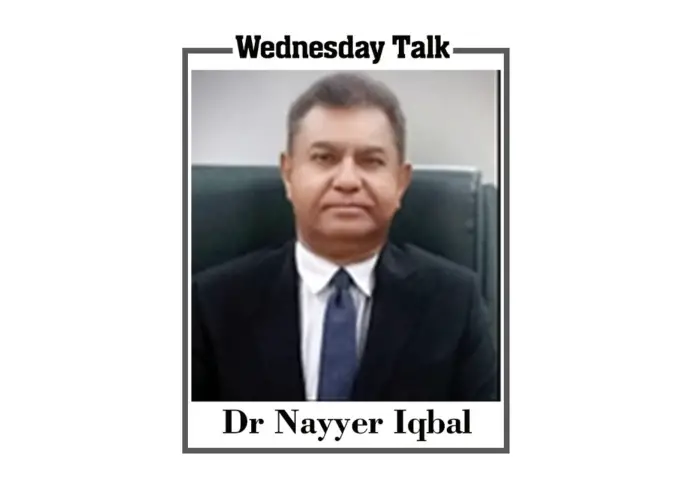The modern UK’s history has turned a new page. Within two days, the Sovereign and the Premier of the United Kingdom have been replaced, however, due to different reasons. The longest-serving ruler of the country’s chronicle, Queen Elizabeth II died on 8 September and was succeeded by King Charles 111. Tentatively 48 hours prior to the royal demise, Elizabeth Truss had been appointed the Prime Minister in place of Boris Johnson. Both the changes were certainly important, but there was no element of surprise or sensation therein. The deceased Empress was too old and fragile to survive for long and the end of her life was anticipated. Similarly, after the resignation of Boris Johnson on 7 July, his successor was looked-for during previous two months.
The 70 years-plus reign of Queen Elizabeth II from 6 February 1952 to 8 September 2022 was a period of extra-ordinarily great developments in all the spheres of life. The process of British empire’s transformation into Commonwealth which had already started before her coronation continued peacefully and in a disciplined manner. It was totally in contrast to the troubled de-colonization exercises of France, Spain and certain other colonial powers. In due course of time, the Queen was able to enhance her prestige and stature in the British-liberated possessions. The 1999- Australian referendum is a suitable example of this connection when Aussies voted with thumping majority in favour of monarchy. The political analysts have noted that the cool and pleasant effect of her personality did facilitate various UK governments to achieve their internal and foreign policy goals, and manage critical situations. She was also successful in keeping herself above the inter-party wrangling in domestic politics as was constitutionally required from her position. However, occasionally she played behind the curtain role in defusing tensions or curbing the centrifugal forces. During her long rule, she was never unconscious of her ecclesiastical functions and civic responsibilities enshrined in the coronation oath of UK and performed them with religious honesty. The Queen herself had always very high approval ratings nevertheless the institution of monarchy and the conduct of her certain family members remained under-question on various occasions. The ‘Diana episode’ in the late-90s was the highest mark of discontent with the monarchy, but it gradually subsided. Many observers have associated survival of monarchy with personal popularity of Elizabeth II and believed that the institution will not be abolished during her life-time.
The Crown prince Charles Philip has been officially proclaimed the monarch on 10 September with the title of King Charles III. Concurrently, the eldest son of the new king William Arthur Philip has been named Prince of Wales. The new king’s popularity has hardly been enviable in the past however it incrementally improved in the post-Dianna years. The timing of Charles III’s accession could not have been worse: the cost of living in the UK has sky-rocketed and international political scenario is unpredictable due to precariousness originated by Ukraine war. How and to which extent King Charles III will be able to follow the foot-prints of his illustrious predecessor and maintain the royal dignity is yet to be observed. Leaving aside the previous track-record of the incumbent sovereign, one should hope for the best at this stage.
Mary Elizabeth Truss, the new Prime minister of the UK, has taken the charge in a complex situation. The Conservative Party has been in power for last twelve years and three of its previous premiers: Boris Johnson, Theresa May and David Cameron; had to leave the office ignominiously. After a two-month contest, Elizabeth Truss has been able to carry the day by pledging to returning to ‘Thatcherite basics’: small government, low taxes, deregulation, strict immigration laws, control of labor unionism, strong army and effective enforcement of law. Nostalgia apart, the question is whether this formula of 1980s will be able to solve the problems faced by the present-day UK? It is pre-mature to make any comment.
At the moment, the UK is confronted with numerous internal issues: fast increasing inflation, unbearable energy costs, falling quality of public services, environment-related actions against industry and independent-minded regime in Scotland. Externally, the prime issues are: lingering-on Ukraine war and disturbed relations with European Union. The political optimism, economic libertarianism and positive belligerence of the new Prime minister are impressive but how she transforms her ideas into reality is yet to be seen. It may not be surprising if she opts to abandon some of her campaign slogans for pragmatic solutions to the most urgent problems. Boris Johnson fell due to his ‘perceived lack of direction’ therefore Truss will have to remain focused on the problems and their way-outs, so that history may not repeat itself.
Out of all the internal challenges, the fast-escalating cost of living is the gravest. The tax-burden is the highest since the World War-II days and the energy prices are rising unabated. The forecasted increase of energy cost by 80% in October has made people sleepless. The idea of subsidizing bills through government-backed loans seems to be the simplest and politically appealing but enormously costly in the long-run. How far the arrangement will sustain? Not indefinitely. Overseas, UK’s ever-increasing bitterness with the EU nations have resulted in diverse complications. Truss may take a bold initiative to harmonize relations with Western Europe which will ease pressure, at-least to some extent, in economic sphere. In this bleak scenario, the determination and will-power that Truss demonstrated while opposing Putin’s adventure in Ukraine, is a ray of hope. Which way, the things move, is anybody’s guess.







Comments are closed.